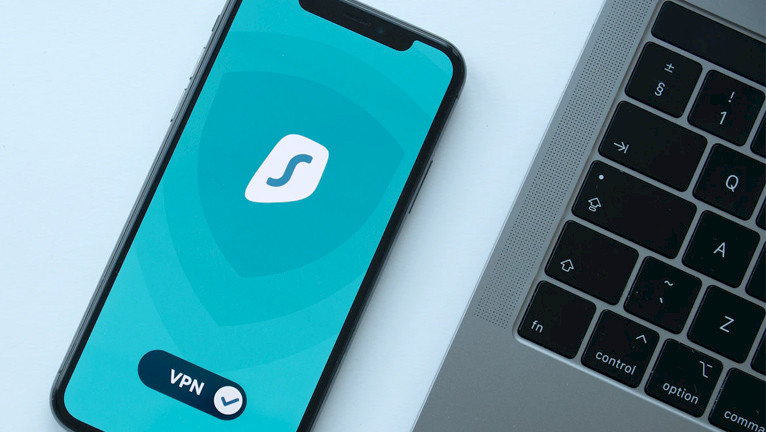Benefits of Using a VPN on Your iOS Devices in 2023

Many Apple users tend to assume that their devices are 100% hacker-proof. Unfortunately, this is just wishful thinking. While Apple undoubtedly offers excellent security features, it’s not immune to cyberthreats, especially when you’re online. Hence, it’s a good idea to get some extra protection to secure your private data and stay safe from the dangers of the Internet. Here, a VPN (Virtual Private Network) comes in to help.
But is it really worth it? What are the benefits of having a VPN on your iOS device?
Let’s find out.
What is a VPN on an iOS Device?
VPN is an acronym for virtual private network. A VPN app is a digital solution or service for Android, Windows, Mac, and iOS devices that encrypts your online traffic and hides your IP address.
In simple terms…
VPNs reroute your traffic using dedicated servers, so no one can see what you’re doing online.
More importantly, it prevents anyone from accessing your private data or digital accounts by intercepting and snooping your traffic. This includes:
- Cybercriminals (hackers, scammers, fraudsters, etc.);
- Internet service providers (ISPs);
- Third-party apps;
- Other online users, etc.
What Can a VPN Protect You Against?
By installing a VPN on your iPhone or iPad, you can enable protection against the whole bunch of nasty things listed below.
1. Online Tracking (Location).
The first thing a VPN does is change your real IP address and assign one from its database.
This is what makes you invisible on the internet. Ha!
It’s important because your original IP address can reveal our personal details, such as:
- Your location (city, region, and country);
- Internet service provider (ISP);
- Physical address;
- Live location.
With all this information hidden, you can stop others from tracking your location online.
2. Browsing Activity.
Along with hiding your geolocation and digital profile, a VPN also hides your search history from cyber criminals, ISPs, third-party apps, and government entities by turning it into indecipherable codes.
To simplify…
Using a VPN makes it nearly impossible for anyone to figure out what you’re doing.
Not bad, right?
For example, hackers can use your browsing history to check which sites and apps you visit frequently.
From your banking app to social media platforms and work databases, nothing is 100% secure.
These criminals can carry out password attacks and gain access to your accounts to steal money, private data, or even your identity.
And no one would want that to happen.
3. Bandwidth Throttling.
If you do a lot of streaming and gaming on your iOS device, you consume far more data than casual internet users.
ISPs hate data-heavy activities as they strain their network.
Hence, bandwidth throttling has become a common practice in the industry in which service providers deliberately slow down your internet speed.
So, by using a VPN to access Netflix or play online games, you’ll be able to hide your IP address. So your ISP can’t track it and throttle your bandwidth.
4. Data Breaches and Hacks.
Did you know that Apple was caught out by hackers pretending to be law enforcement officials in 2021?
According to Bloomberg, the company provided them with customer phone numbers, IP addresses, and even physical addresses.
So, like any other phone or tablet, iPhones and iPads aren’t immune to data breaches, malware attacks, and other cybersecurity threats.
It’s hard to believe that. I know.
Nevertheless, by installing a VPN, you can set a perimeter around your digital network and protect your personal information.
VPNs use impenetrable 256-AES-bit encryption for extra protection. Even the most sophisticated hacking software can’t crack this encryption.
Is it Worth Having a VPN on iPhone?
Yes, installing a VPN app on your iPhone is an excellent way to strengthen your phone’s security.
Although Apple offers the best built-in encryption in the market, they're limited to the traffic your phone sends to Apple’s servers. So, hackers can easily snoop around on your network traffic.
Along with securing all your traffic, a VPN can also prevent Wi-Fi spoofing and ad-tracking, especially when using public networks.
Does VPN Protect iPhone from Hackers?
Essentially, yes.
A VPN offers encryption-based protection to mask your IP address and online traffic. This makes it nearly impossible for hackers to track your activities and location.
Simply put, it makes you a harder target and significantly reduces data theft chances.
Does a VPN Hide Your Location on iPhone?
Yes, the core purpose of a VPN is to hide your IP address and direct all traffic to a remote server.
The process encrypts your geolocation and assigns a virtual IP address that doesn’t contain your personal information.
Conclusion
A VPN is an excellent security solution you can use to keep hackers, snoopers, and other malicious criminals from messing with your iOS device and private data.
Although iPhones are generally secure, there’s no harm in opting for additional security, especially when you access the internet using public Wi-Fi or have sensitive information on your devices.





